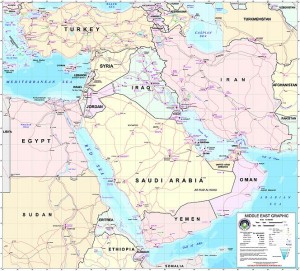 Some thoughts on U.S. policy toward Syria on the occasion of the just-ended “Friends of Syria” meeting in Tunisia:
Some thoughts on U.S. policy toward Syria on the occasion of the just-ended “Friends of Syria” meeting in Tunisia:
Since the end of the cold war, many Americans have a sense of being so strong, they don’t need to think about their own security but can afford to focus on the immediate humanitarian concerns of others. This leads to a sentimental U.S. foreign policy of “war as social work” in which the welfare of peoples with an admittedly wretched record as American allies (Afghans, Iraqis, Libyans, Syrians) can trump national interests. In fact, American interests often diverge from those of Middle Easterners. For example, as I put it six years ago, “when Sunni terrorists target Shiites and vice-versa, non-Muslims are less likely to be hurt.”
Applying this approach to the crisis in Syria: Good news that the abominable Assad dynasty is coming to its end. Better “the devil we don’t know” than more of a totalitarian regime that oppresses its people, threatens its neighbors, and provides crucial assistance to the mullahs in Tehran.
That said, I favor a U.S. policy of inaction, of letting events transpire as they might in Syria. While the regime and its opposition battle:
- The less the regime can make trouble for its neighbors.
- The more potential for Iranians to take inspiration and rebel against their rulers.
- The more Sunni Arabs anger at Tehran. As Syria analyst Gary Gambill puts it, “What’s wrong with the status quo of an Iran chained to a Syrian corpse?”
- The more they anger at Moscow and Peking.
Further, the overthrow of the Assad regime will not automatically end the country’s civil war. More likely, that will reverse the dynamic, with Alawi and other rebels next fighting a Sunni Islamist regime.
Agree or disagree with my specifics; but Americans should look at Syria strategically, putting a priority on their own security in a dangerous world.



